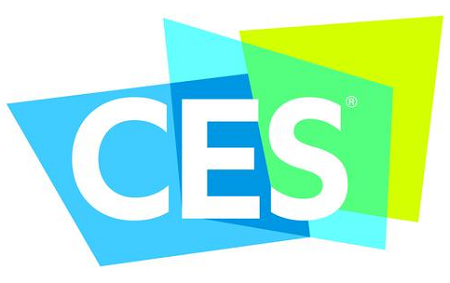This week brought Skype and Outlook updates, a new Windows 10 preview build, and the end of support for Internet Explorer 8, 9, and 10.
10 Best Enterprise Products At CES
10 Best Enterprise Products At CES (Click image for larger view and slideshow.)
Microsoft is jumping back into the swing of things after a busy week at the 2016 Consumer Electronics Show, where it revealed news on connected car partnerships and Windows 10 devices.
This week's updates track Internet Explorer, Windows 8, Windows 10, Skype for Business, and Outlook. We learned about a new acquisition, a business-focused event, and the integration of the R language into Redmond's product lineup.
On Jan. 12 Microsoft officially terminated security updates, technical support, and compatibility fixes for Internet Explorer 7, 8, 9, and 10. Users are encouraged to upgrade to IE 11, or switch browsers, in order to avoid security risks.
The end of support affects PCs using Windows 7, Windows 8.1, Windows 10, Windows Server 2008 R2, Windows 2012 R2, and certain versions of Windows Embedded. Microsoft will continue support for IE 7, 8, 9, and 10 for Windows Vista, Windows Server 2012, and certain versions of Windows Server 2008 and Windows Embedded OS.
[Prepping for Windows 10 migration? These tips will help.]
Security updates are also ending for PCs running the original version of Windows 8, which launched in Oct. 2012. If you're still using Window 8, it's time to upgrade to Windows 8.1 or Windows 10 to minimize security risk.
On the mobile front, Microsoft released updates to Skype and Outlook for iOS and Android. When creating an Outlook event, you'll have the option to include Skype call access in the details. When the event starts, attendees can click the link to join a group chat.
Other changes include new two-week and three-week calendar viewing options in Outlook and a redesigned navigation bar in Outlook for Android. Outlook for OS X now supports full-screen view with a few interface updates.
Microsoft has been making several changes to its Outlook mobile app over the last few weeks in response to user feedback. Examples include the abilities to save contacts to the default Contacts app for iOS and Android and to save files directly to an Android device.
An acquisition announced this week will bring changes to the management tools in Skype for Business. Microsoft has purchased technology assets from Event Zero, a company that provides management software for Skype for Business online. The goal is to make Skype for Business as usable within the enterprise as Skype is among consumers, Redmond reported.
Microsoft's acquisition of Revolution Analytics is now making a difference in its product portfolio. This week's announcements include the rebranding of Revolution R Enterprise as Microsoft R Server, and the pre-configuration of Microsoft R Server Developer Edition with the Microsoft Data Science Virtual Machine.
Revolution R Open, now rebranded as Microsoft R Open, is available as a free download. Microsoft R Server is also available for academic use through the Microsoft DreamSpark program.
Windows 10 became a talking point among business customers when Microsoft announced it would be pushing upgrade notifications to PCs running Windows 7 Pro and Windows 8.1 Pro. Before this week, Pro devices had been off-limits to the Get Windows 10 app and the upgrade alerts that came with it.
This news only affects devices connected to Active Directory and configured to receive updates via Windows Update. PCs running a version of the Windows Enterprise OS, and ones that receive updates from System Center Configuration Manager or Windows Server Update Services, will not be affected.
Microsoft released the latest Windows 10 build to its Fast Ring of Windows Insiders. Build 11099, like its predecessor, does not include major changes or new features. It does include improvements to OneCore, which is the core Windows OS shared across devices.
Gabe Aul, vice president of engineering systems for the Windows and Devices Group, reminded us the team will be making changes to the way Insider builds are released in 2016. Going forward, the criteria used to release builds will be closer to the criteria used for internal testers. This means more frequent builds, but potentially more bugs, for Insiders.
About the Author(s)
You May Also Like








